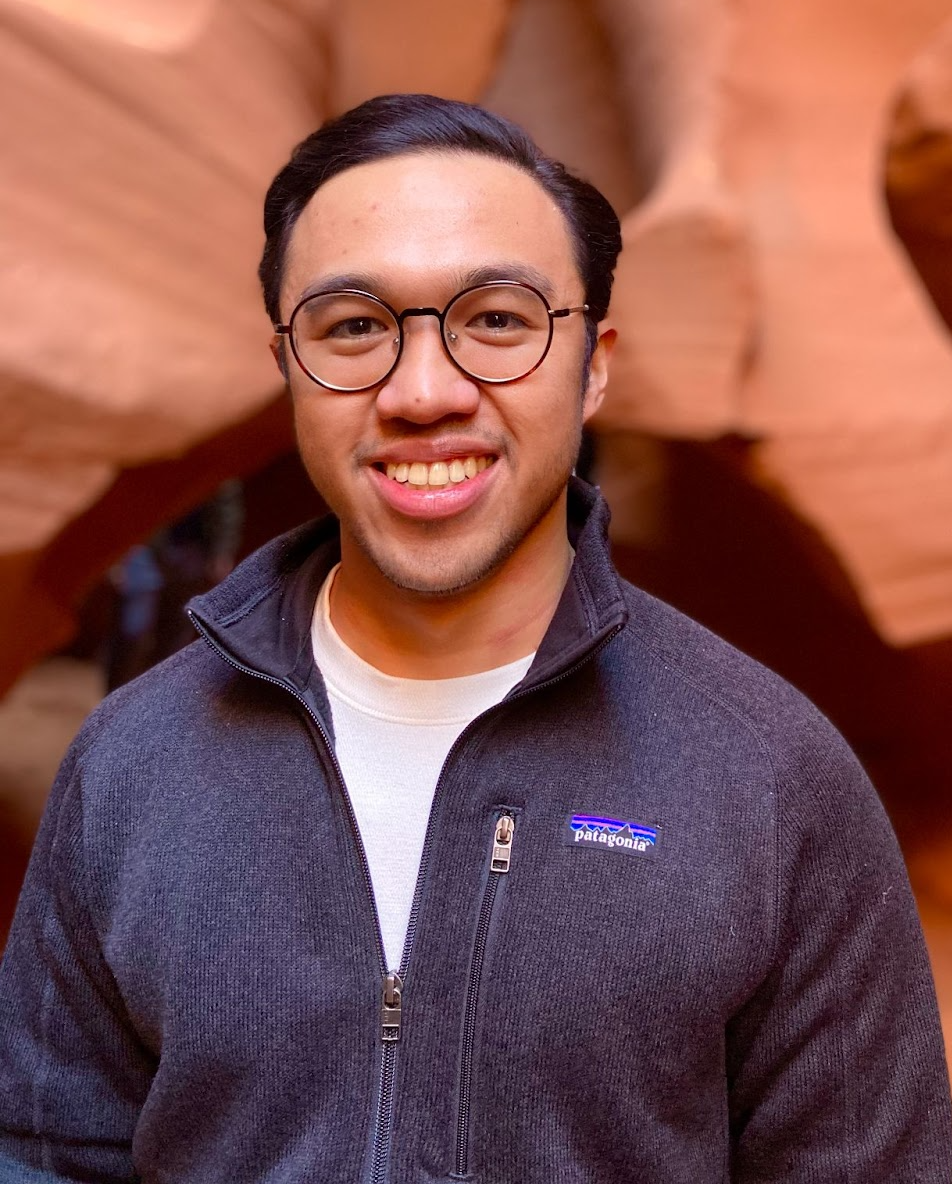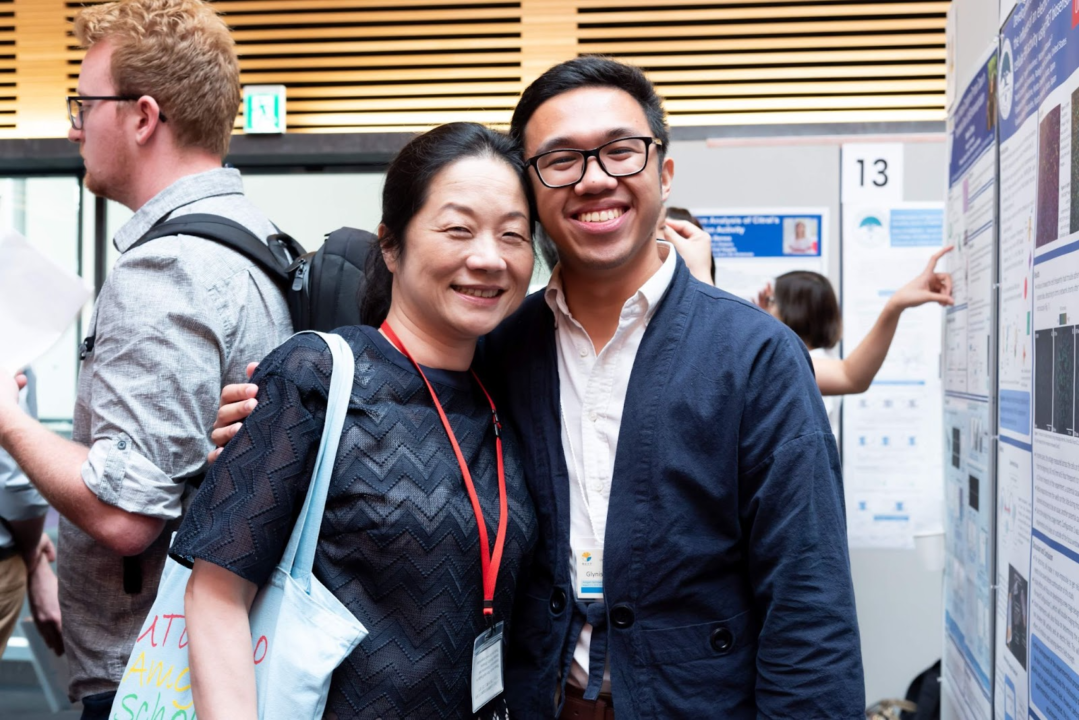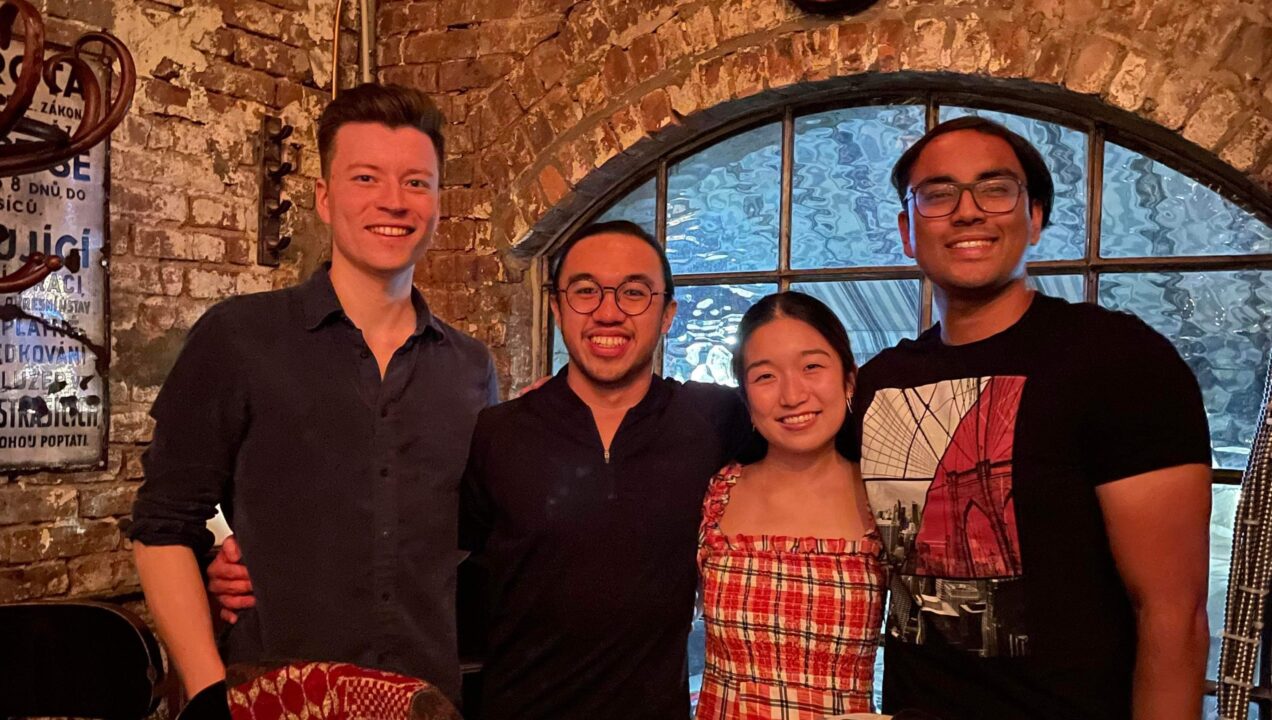
On the Discovery Chase: From the Philippines to Tokyo to New York City
When Robert Aguilar was an undergraduate student at the University of the Philippines, Diliman, he remembers a moment walking home late at night after a long day of conducting experiments. “I had found a good result and thought: wow, I am the only one in the world, at this moment, who knows about this really small thing,” he recalls. “That felt special to me.”
Now pursuing a PhD in neuroscience at Columbia University, Aguilar is driven to continue “chasing those moments of discovery.” He has chased those moments from conducting research in the Philippines, to the Amgen Scholars Program at the University of Tokyo, to a lab in Taiwan, and now in New York City.
Growing up in the Philippines, Aguilar did not have many role models for pursuing science. His parents were the only ones in their families to go to college and the only scientists he knew were on the Discovery Channel and National Geographic. After excelling in grade school science, Aguilar was awarded a scholarship to attend the Philippine Science High School. There, he saw science for the first time as a viable career path, not only receiving a specialized curriculum in science but also meeting alumni from the school who went on to work in the sciences.
Despite his parents’ wish for him to become a physician, Aguilar turned down a medical school offer, opting instead to pursue the biosciences. At the University of the Philippines, Aguilar quickly started working in labs, beginning with a marine biology lab studying corals, and eventually moving to a lab working on androgens, important developmental hormones. But it was not until Aguilar participated in the Amgen Scholars Program in 2018 at the University of Tokyo that he had the full confidence he could go on to become a scientist.
From the get-go, Aguilar could see the difference between doing science in Japan compared to the Philippines.” In the Philippines, the science is very slow, taking a week or two weeks to get primers to get sequencing data,” he explains. “When I got to Japan, it was a big shock to be able to get what I needed quickly every day and just to see the level of science that I could actually do. It was a wake up call.”

On top of that, before Amgen Scholars, Aguilar did not know what it took to “be a good scientist,” he says. “I was just this guy from the Philippines and I came to Tokyo with all these other people from the world who went to world class schools… but then I realized I could actually do the same level of science as them. It’s not about where you are from; it’s about the resources you are given.”
Since then, Aguilar has not looked back. With his newfound confidence, he continued lab work throughout his undergraduate degree and applied to graduate schools. He went on to conduct summer research in Taiwan, where he studied development of the mouse spinal cord, giving him a first glimpse at neuroscience. And his experience with Amgen Scholars in Tokyo — his first time abroad and in a big city — also inspired Aguilar to dream of working eventually in another grand metropolis, New York City.
Aguilar is now working in the lab of Oliver Hobert at Columbia University, studying glial cells. “Throughout the history of neuroscience, people have been focused on neurons, thinking they are the ‘Holy Grail’ of neuroscience. Only recently have we turned our attention to glial cells, which make up about half of the human brain.” Aguilar is studying glial cells in the nematode worm C. elegans, which only has 56 glial cells, making it an elegant animal model for understanding them and their evolution in many animals.
Aguilar discovered his current lab in the first year of his PhD. After working on hormonal regulation research as an undergraduate, he did not expect to end up in a neuroscience lab, but was captivated by the Hobert lab’s work at the intersection of neuroscience, genetics, and developmental biology.

In the future, Aguilar is open to continuing in academia or potentially pursuing biotechnology. One thing he knows for sure is that we would love to stay in New York. He also continues to stay in touch with other Amgen Scholars from his cohort. They formed lasting friendships and their own professional network for future pursuits.
Aguilar encourages other Amgen Scholars to “keep your cohort network alive.” Whether applying to grad schools or exploring new job opportunities, fellow Scholars can help guide your endeavors.

